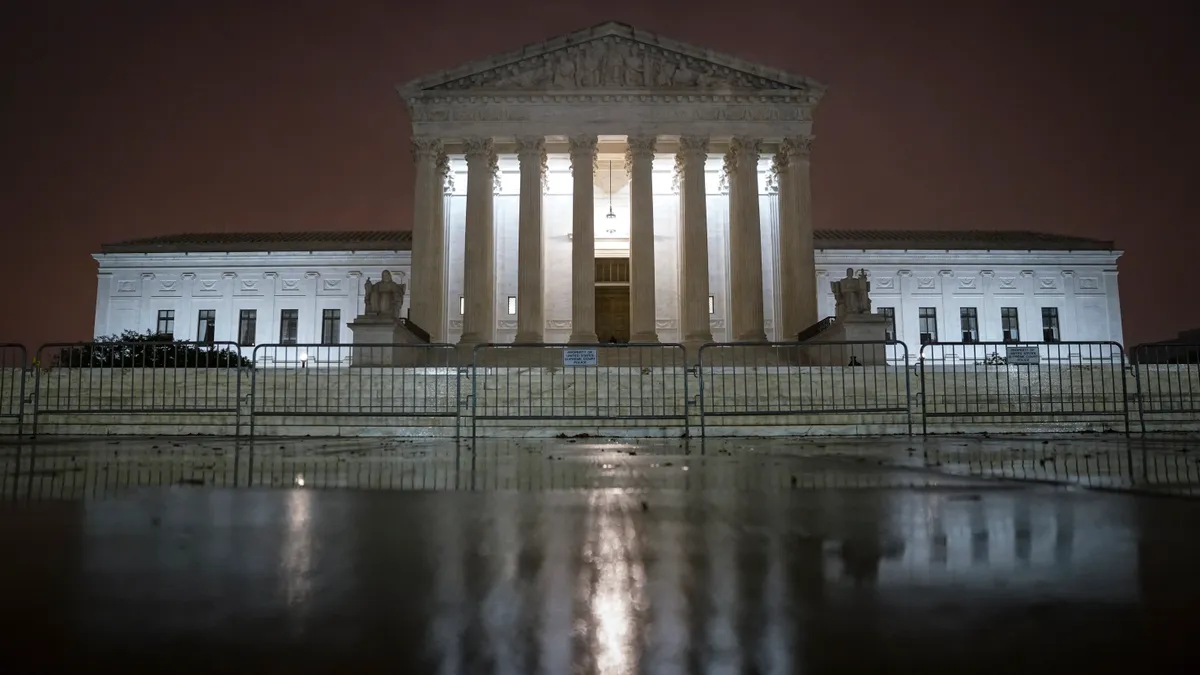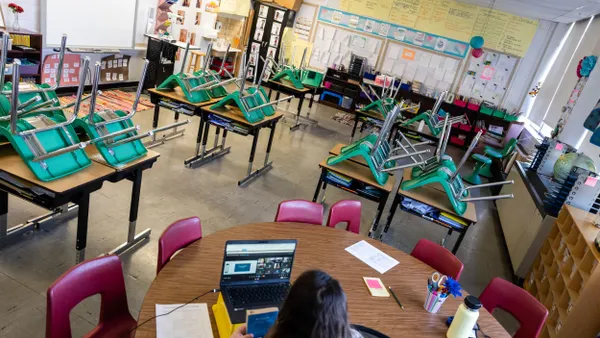Dive Brief:
- Attorneys for Oklahoma's St. Isidore of Seville Catholic Virtual School — which was set to become the nation's first publicly funded religious charter school prior to being blocked by the state Supreme Court — filed an appeal with the U.S. Supreme Court on Monday.
- The petition asks the justices to consider whether a state violates the Free Exercise Clause by excluding privately run religious schools from the state’s publicly-funded charter school program. It also asks whether the private religious school's curriculum and practices are considered "state action" because its free education is funded by the state.
- Petitioners claim that the Oklahoma Supreme Court's decision to not fund the school is "religious hostility," because it violated the school's "right to participate in its charter school program solely because of St. Isidore’s religious character."
Dive Insight:
St. Isidore was slated to launch for the 2024-25 school year, but remains closed in light of the ongoing litigation that began last year questioning the school's constitutionality. It's run by the Archdiocese of Oklahoma City and the Diocese of Tulsa.
Two separate but related Supreme Court cases paved the way for its creation: Carson v. Makin in 2022 and Espinoza v. Montana Department of Revenue in 2020. When taken together, the two cases gave private institutions access to public funding regardless of their religious use or status, leaving the door open for public funding of religious schools, including charters with religious instruction.
Last year, the Oklahoma Statewide Virtual Charter School Board approved St. Isidore’s contract in a narrow 3-2 vote. Members of that board acknowledged the controversial nature of their decision and expected litigation from either those for or against the school depending on the final vote.
The contract was severed this August after the Oklahoma Supreme Court found the school would violate the state’s constitution and the First Amendment’s Establishment Clause, refusing it state funding. However, the board left open the possibility that the contract could be reinstated if the U.S. Supreme Court reverses the state court's decision.
The petition filed Monday will have a slim chance of making it to the final docket, considering the more than 7,000 petitions the Supreme Court receives each term, out of which it chooses to weigh in on only around 80.
However, both parties in the St. Isidore case have indicated they are willing to argue their sides in front of the Supreme Court.
“I will continue to vigorously defend the religious liberty of all four million Oklahomans," said Oklahoma State Attorney General Gentner Drummond in a statement Monday. Drummond filed and argued the lawsuit challenging the school in front of the Oklahoma State Supreme Court.
"This unconstitutional scheme to create the nation’s first state-sponsored religious charter school will open the floodgates and force taxpayers to fund all manner of religious indoctrination, including radical Islam or even the Church of Satan," Drummond said.
John Meiser, director of the Lindsay and Matt Moroun Religious Liberty Clinic at the University of Notre Dame and an attorney for St. Isidore, said in a statement on Monday that Drummond's "disregard for religious pluralism is offensive — and his outmoded views on the law are simply wrong."
The state "cannot exclude some private entities from participation simply because they are religious," said Nicole Stelle Garnett, a professor at Notre Dame Law School and an attorney for St. Isidore. "Only one kind of diversity is off the table — religion."
If the case is accepted, the Supreme Court could hear arguments by the end of next term.
It would add to a number of additional cases in recent years heard by the court related to the separation of church and state in public schools. In addition to Carson and Espinoza, for example, the court in 2022 also ruled on a school prayer case in favor of a football coach fired by his district for praying with students on the school football field.











